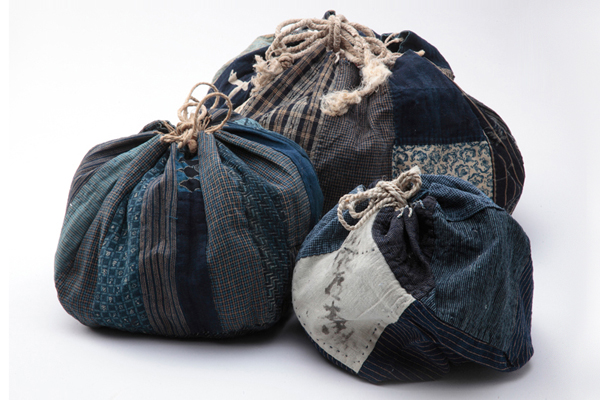Over recent years, the Domaine de Boisbuchet – internationally known for its prestigious workshops – has, each summer, shown a new and extraordinary exhibition related to design and architecture. This year’s presentation, “Boro – The Fabric of Life”, highlighting traditional Japanese patchwork textiles will be exhibited at the Château du Domaine de Boisbuchet in Charente in southwestern France from 7th June 2013 to 15th September 2013.
The approximately 50 blankets, bags, shirts, Kimonos, trousers and other clothing items in this show were mended by poor peasants from left-over, usually indigo dyed fabrics between 1850 and 1905. Boro textiles represent some essential principles of traditional Japanese ethics and aesthetics such as the favouring of the sober and modest (shibui); imperfections expressed by irregularity, incompleteness, rawness and simplicity (wabi-sabi); and, of course, regret about any waste (motttainai). All of these characteristics attest to a respect for the singularity of things, which opposes today’s consumption-oriented life patterns. Boro – derived from the Japanese onomatopoeic boroboro which means something rotten – thus demonstrates esteem for our available resources, labour and quotidian objects.





